Hairy-nosed Otter Lutra sumatrana
Endangered
Extant (resident): Cambodia; Indonesia; Malaysia; Thailand; Vietnam
Possibly Extinct: Brunei
Extinct: India; Myanmar
Presence Uncertain: Laos
Hairy-nosed Otters live in freshwater and coastal areas, especially mangroves in Indonesia, as well as rivers and waterways of other parts of South East Asia including Cambodia, Indonesia, Malaysia, Thailand and Vietnam. However this otter species has now gone extinct in India. It will never be possible to establish Hairy-nosed Otter’s pre-exploitation mainland range. Their populations are under rapid decline almost across mainland Southeast Asia, through trade-driven hunting (Duckworth and Hill 2008, Sheperd and Nijman 2014) and habitat degradation. This species is considered to be Endangered due to past population declines and they have no known conservation projects in place to protect them. Help them and #Boycott4Wildlife
Endangered in #Indonesia #Malaysia #Cambodia #Vietnam and #Thailand the Hairy-nosed Otter is parts of #Asia. Their main threat is #rainforest destruction for #palmoil #meat and timber agriculture. Help them and #Boycottpalmoil #Boycott4Wildlife
Tweet
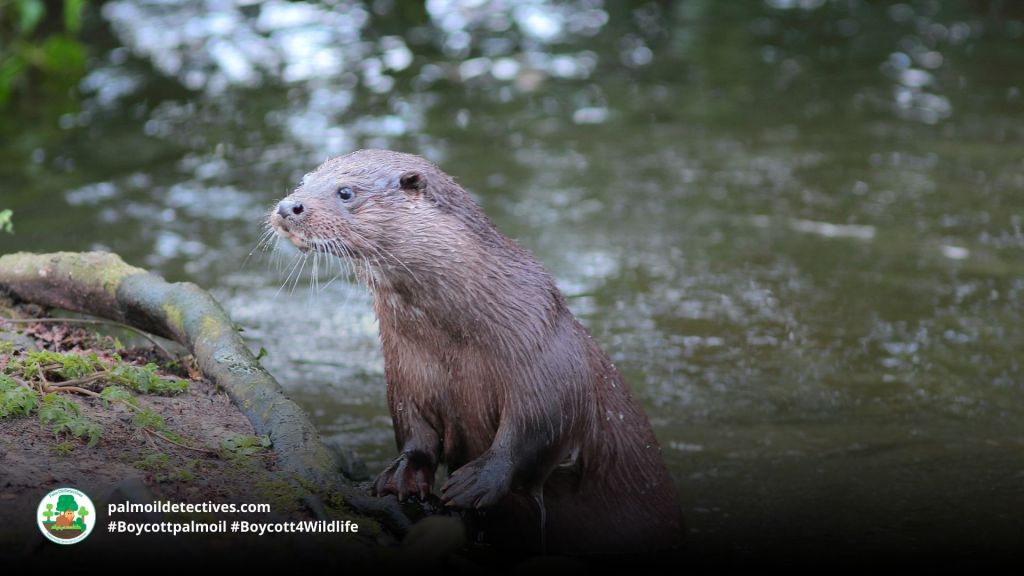
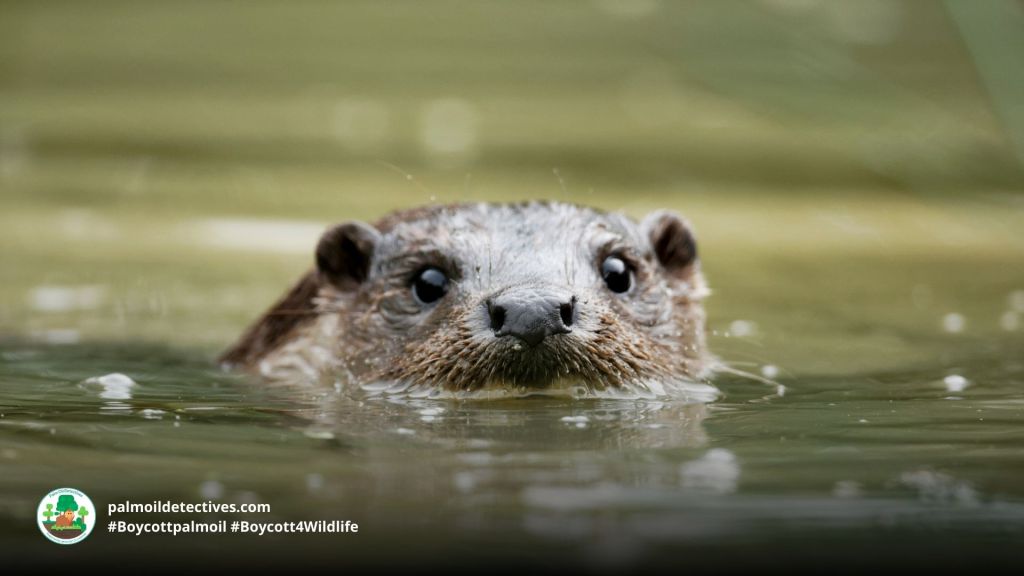

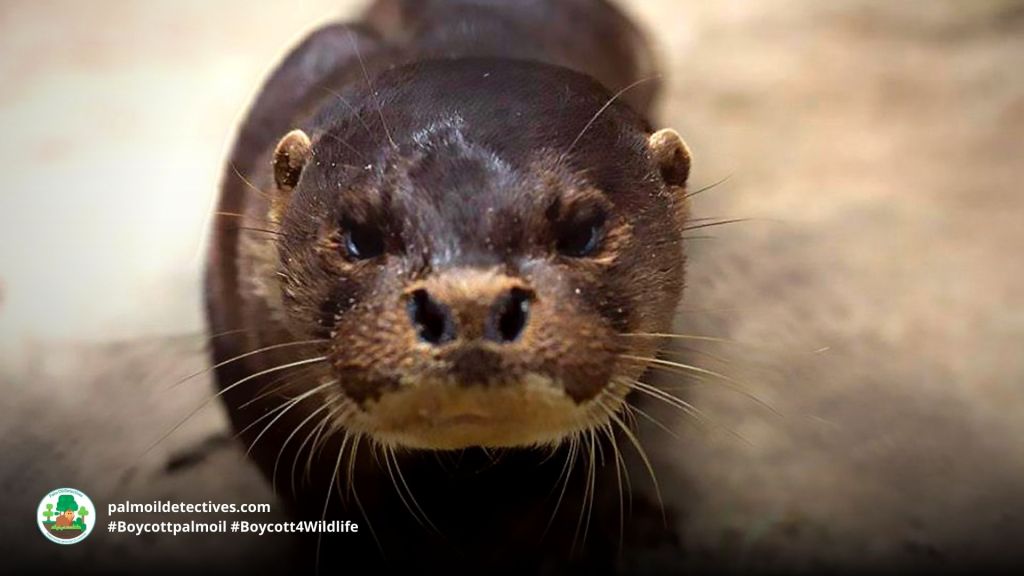

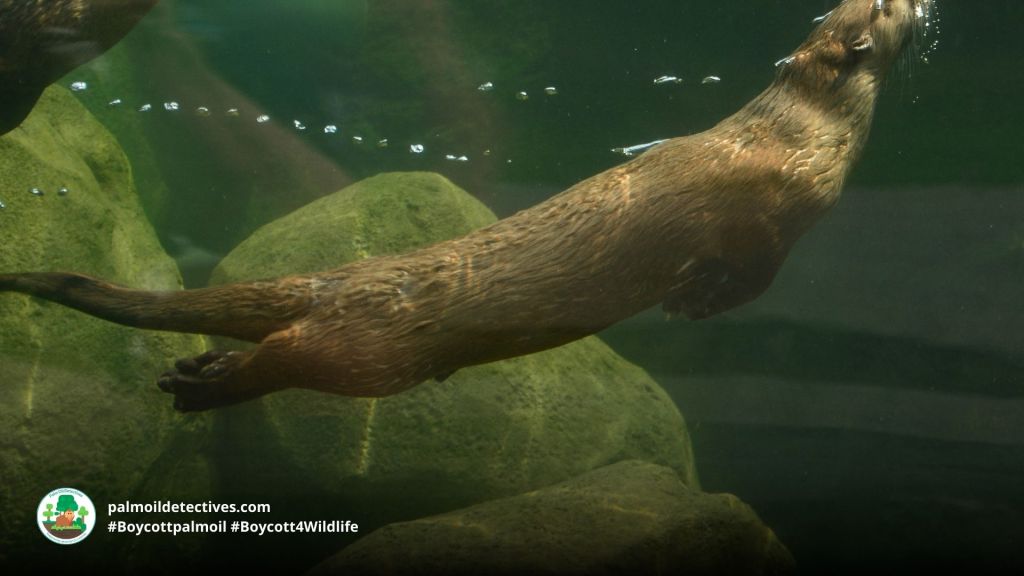
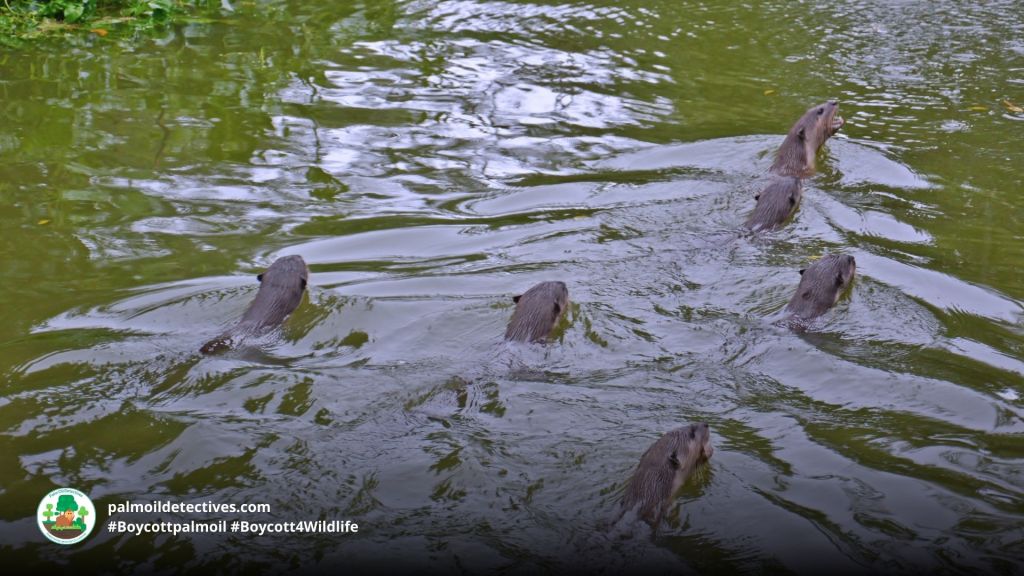
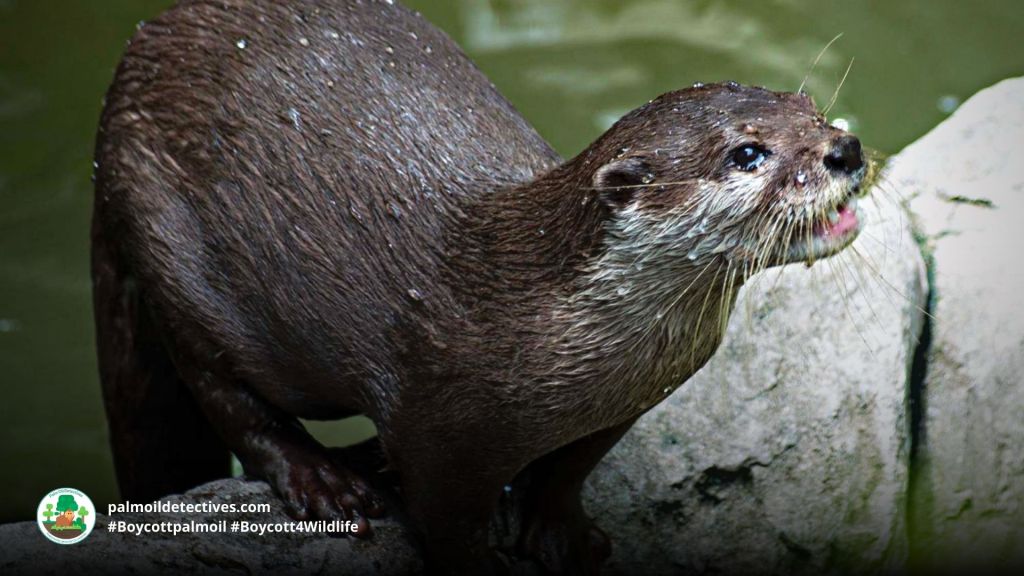
You can support this beautiful animal
There are no known conservation activities for this animal. Make art to raise awareness and join the #Boycott4Wildlife.
Further Information

Aadrean, A., Kanchanasaka, B., Heng, S., Reza Lubis, I., de Silva, P. & Olsson, A. 2015. Lutra sumatrana. The IUCN Red List of Threatened Species 2015: e.T12421A21936999. https://dx.doi.org/10.2305/IUCN.UK.2015-2.RLTS.T12421A21936999.en. Downloaded on 21 January 2021.

How can I help the #Boycott4Wildlife?
Contribute in five ways
1. Join the #Boycott4Wildlife on social media and subscribe to stay in the loop: Share posts from this website to your own network on Twitter, Mastadon, Instagram, Facebook and Youtube using the hashtags #Boycottpalmoil #Boycott4Wildlife.
2. Contribute stories: Academics, conservationists, scientists, indigenous rights advocates and animal rights advocates working to expose the corruption of the palm oil industry or to save animals can contribute stories to the website.
3. Supermarket sleuthing: Next time you’re in the supermarket, take photos of products containing palm oil. Share these to social media along with the hashtags to call out the greenwashing and ecocide of the brands who use palm oil. You can also take photos of palm oil free products and congratulate brands when they go palm oil free.
4. Take to the streets: Get in touch with Palm Oil Detectives to find out more.
5. Donate: Make a one-off or monthly donation to Palm Oil Detectives as a way of saying thank you and to help pay for ongoing running costs of the website and social media campaigns. Donate here








